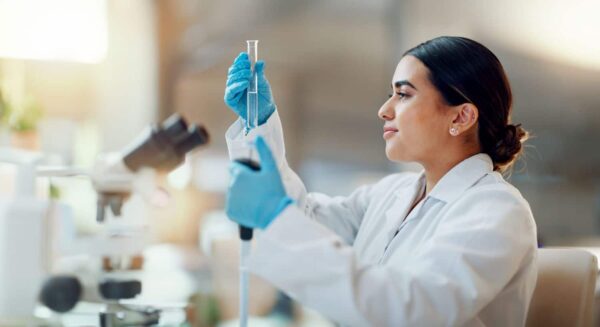Low Testosterone
Hormones change as we go through the life cycle. What is normal for a 20-year-old is not the same normal as for a 60-year-old. Although low testosterone (“low T”) is a diagnosis being promoted by the makers of testosterone medications, it is not as simple as just prescribing hormone replacement.
A low testosterone level can be due to many factors. A clinician must also take care not to add testosterone too quickly without exploring other therapies first, because once external testosterone is given, it inhibits the body’s natural production of testosterone.
Key Factors in Optimizing Male Hormones
1. Maintain Ideal Bodyweight
This is probably the most important thing a man can do. As belly fat increases, there is an increase in activity of the enzyme “aromatase” which converts testosterone in the fat cells to estrogen. This reduces testosterone and increases estrogen, which can increase fat deposition in typical female areas (breast, hips, thighs) and increase the risk of enlargement of the prostate and even prostate cancer. With every one-point drop in your body mass index (BMI) your testosterone level will increase by approximately 1 point. In fact, management of obesity may prevent declining total testosterone in the aging male.
2. Avoid Developing Diabetes
Developing diabetes increases the risk of having a total testosterone level of less than what is considered normal. Over a 10-year period, the risk for developing abnormally low testosterone levels more than doubles in diabetic individuals.
3. Exercise
A combination of aerobic (increase in heart rate) and resistance (weightlifting) training has been found to increase the production of testosterone. This also helps prevent the most common diseases that men are most likely to die from, heart disease and cancer.
Overtraining in endurance sports such as American football and weight-class wrestling and excessive exercise with calorie restriction can cause testosterone deficiency as well.
4. Sleep Well
Most of the body’s testosterone is made during deep sleep when a person is in Rapid Eye Movement (REM). A disrupted sleep cycle with less time spent in REM has been associated with low testosterone levels.
5. Avoid Tobacco Products
Tobacco, particularly through cigarette smoking, has been associated with various adverse effects on health, including potential impacts on hormone levels, such as testosterone. While the relationship between tobacco and testosterone is complex and not fully understood, several mechanisms have been proposed to explain how tobacco use may contribute to lower testosterone levels:
- Endocrine Disruption: Tobacco smoke contains numerous toxic chemicals, including polycyclic aromatic hydrocarbons (PAHs) and heavy metals. These substances can interfere with the endocrine system, which regulates hormone production and release. Disruption of the endocrine system may affect the synthesis and function of testosterone.
- Increased Cortisol Levels: Smoking has been linked to an increase in cortisol, a stress hormone. Elevated cortisol levels, if persistent, can negatively impact the balance of sex hormones, including testosterone. Chronic stress and high cortisol levels are associated with various health issues, including hormonal imbalances.
- Oxidative Stress: Tobacco smoke generates oxidative stress in the body due to the presence of free radicals. Oxidative stress can damage cells, including Leydig cells in the testes responsible for testosterone production. This damage may lead to a reduction in testosterone synthesis.
- Inflammation: Smoking is known to induce inflammation in the body. Chronic inflammation is associated with various health conditions and can negatively impact hormone regulation. Inflammation may interfere with the normal functioning of the testes, affecting testosterone production.
- Vasoconstriction: Nicotine, a key component of tobacco, is a vasoconstrictor, meaning it narrows blood vessels. This vasoconstriction can affect blood flow to various organs, including the testes. Impaired blood flow may compromise the delivery of nutrients and oxygen to the testes, potentially influencing testosterone production.
- Hormone Binding: Tobacco smoke may alter the levels of sex hormone-binding globulin (SHBG), a protein that binds to testosterone and regulates its availability in the bloodstream. Changes in SHBG levels can influence the amount of free, biologically active testosterone.
6. Avoid Excessive Alcohol
Alcohol (more than two drinks a day), increases the conversion of testosterone to estrogen. The relationship between alcohol and testosterone is complex, and the effects can depend on several factors, including the amount and frequency of alcohol consumption, individual differences, and overall health. Here are some ways in which alcohol may influence testosterone levels:
- Suppression of Testosterone Synthesis: Chronic and heavy alcohol consumption has been linked to a reduction in testosterone production. The testes are responsible for synthesizing testosterone, and alcohol may directly interfere with the normal functioning of Leydig cells, which produce this hormone.
- Increased Aromatization: Alcohol may contribute to an increase in the conversion of testosterone to estrogen through a process known as aromatization. This occurs when the enzyme aromatase converts testosterone into estrogen. Higher estrogen levels relative to testosterone can disrupt the hormonal balance in the body.
- Liver Function: The liver plays a crucial role in metabolizing and eliminating hormones, including testosterone. Excessive alcohol consumption can lead to liver damage and impair its ability to function properly. This can potentially result in decreased clearance of estrogen from the body, contributing to an imbalance between estrogen and testosterone.
- Disruption of Gonadotropin Release: Alcohol can influence the release of gonadotropins, which are hormones that regulate the activity of the testes. Chronic alcohol consumption may disrupt the normal pulsatile release of gonadotropin-releasing hormone (GnRH), luteinizing hormone (LH), and follicle-stimulating hormone (FSH), all of which are involved in testosterone production.
- Nutrient Depletion: Alcohol can lead to nutrient deficiencies, including a reduction in zinc levels. Zinc is an essential mineral for maintaining healthy testosterone levels, and a deficiency may contribute to decreased testosterone synthesis.
- Increased Cortisol Levels: Chronic alcohol consumption can elevate cortisol levels, which is a stress hormone. Elevated cortisol can have a negative impact on testosterone levels, as both hormones are part of the body’s response to stress. Prolonged stress and elevated cortisol levels may lead to hormonal imbalances.
- Dehydration and Stress: Alcohol is a diuretic, and excessive consumption can lead to dehydration. Dehydration and the stress placed on the body by alcohol consumption may contribute to hormonal imbalances, potentially affecting testosterone levels.
7. Avoid Opioid Pain Medications
Morphine and other opiates decrease testosterone. This can go on for months to years
while a person is being treated with opioid medications. Levels can drop as quickly as a few hours after starting opioids. It appears that the higher the dose of opioids, the greater the risk of low testosterone. Fortunately, this side effect should be reversible after stopping the pain medication. Of course, do not stop or change pain medication suddenly without consulting with the prescribing provider.
8. Avoid Xenobiotics
Xenobiotics are compounds from the environment that mimic the body’s hormones.
Research has shown that the average testosterone level in men has gradually dropped over the years. This may be in part due to all the environmental toxins that have accumulated over the years. The main toxins that we know about thus far include the following:
- Bisphenol A (BPA). BPA is found in plastics. To avoid it, don’t microwave food in
plastic containers. Avoid plastic containers with the numbers 3, 6, or 7 engraved in the triangle on the product. Buy BPA-free water containers. Drinking water out of containers with the numbers 2, 4, 5, or 7 is OK. Do not drink out of Styrofoam
containers. - Phthalates. These chemicals are used in plastics, coatings, lubricants, and binders. Many are found in hygiene products such as shampoos and colognes. A useful website on phthalate-free products is the Guide to Less Toxic Products.
- Organophosphates. These are mainly found in pesticides and herbicides. Eat
organic when possible to avoid exposure to them.
9. Avoid Excessive Stress
Cortisol levels in the blood are indicators of stress level. This steroid hormone can increase fat deposition, resulting in more conversion of testosterone to estrogen.
10. Eat Well
Poor nutrition is at the root of many diseases and can also create an imbalance of male hormones.
Foods to avoid:
- Excessive sugar
- Excessive caffeine
- Red meat and other sources of animal fat
- Excessive dairy products
- Food dyes
- Processed foods
Foods to include:
- Green tea
- Multicolored fruits and vegetables
- Nuts (particularly Brazil nuts which are rich in selenium—two a day is
- plenty)
- Fiber (covered by eating fruits and vegetables)
- Ground flax seed (1 tablespoon a day)
- Soy products (soy milk instead of cow’s milk)
11. Consider Dietary Supplements
To maintain healthy testosterone levels, the changes discussed above will trump any
supplement, but the nutrients below have been found to inhibit aromatase and may be additive benefits.
- Zinc (if levels are low): 25-50 mcg daily.
- Quercetin: 400 mcg daily.
- Grape seed extract: 100-300 mcg daily. You can get all these nutrients by eating
nuts, fruits (grapes and citrus), and vegetables. - DHEA: 25-50 mcg daily. This OTC supplement is a precursor to testosterone found
in the adrenal gland. It goes down when stress (cortisol) goes up. The best way to
raise DHEA is to learn to see life in a less stressful way.









